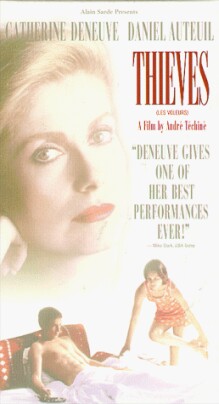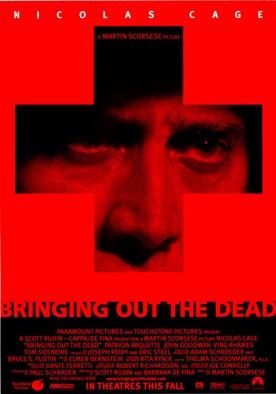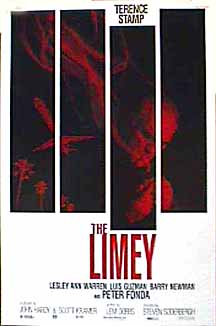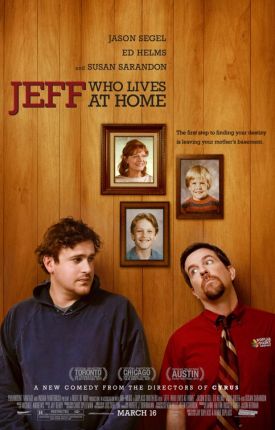Thieves (Les Voleurs)
Thieves by André Téchiné, is one of those films
where the artistic means completely overpower the narrative ends. Here we have
multiple narrators, shifts backward and forward in time, several brooding, complex,
mysterious characters and a tangle of unexplained plot details trailing off into
philosophical conversations full of gnomic utterance. And all for what? To tell
the story of two brothers, Alex (Daniel Auteuil) and Ivan (Didier Bezace), one a
cop and one a crook, who hate each other but love (well, engage in sexual
intercourse with) the same woman. All the heavy freightage of artistry is to supply the place
of what, in an old-fashioned, plot- driven movie, would have been the scene where
the two come into mortal conflict at a climactic moment of intersection between
private and public. Téchiné must have forgotten to put that part
in. Instead, one of them is killed in a car theft that goes wrong, but nothing
much else happens.
The death matters only to the man’s
small son, Justin (Julien Rivière), who narrates two of the segments but
of whom we see really very little, and presumably his wife, Mireille (Fabienne
Babé) and father (Ivan Desny), of whom we see even less. In short,
Techiné has assembled a mass of materials here, a possibly interesting
situation and characters, but he does nothing with them. All anybody does is
strike attitudes. A good emblem of the
film’s dissipation of its resources is
in the scene when Justin, after his
father’s death, finds a gun that he
had hidden away in the house. He carefully removes it from its hiding place,
takes it outside to a shed and hides it there under a floorboard.
That’s the last we ever see of it.
This may be a deliberate snub to whichever theorist of the well-made play said
that when you show a gun in Act I you had better make sure it gets used in Act
III, but apart from that it seems to have no other function.
Or rather, it has the function that almost everything else has, which is the
creation of a vague atmosphere of noirish doubt, despair, hatred,
cynicism and barely suppressed violence. But the film affords a redundant
demonstration of the principle that atmosphere alone will not make a movie
watchable. It is perfectly in keeping with the atmosphere that Alex should start
having joyless and unloving sex with Juliette (Laurence Côte), a young
girl who is picked up for shop-lifting and whom he then lets go, or that he is
divorced from his wife because he believes that
“these days, having kids is
crazy,” or that he takes three showers
a day and before and after sex, that he hates sharing his bed, that
“a naked body holds no interest for
me,” that he dislikes youth, etc etc.
These are some of the trappings of the noir hero. Likewise, it makes
sense that Juliette should also be having a lesbian affair with her philosophy
professor, Marie (Catherine Deneuve), a grandmother who drinks whisky in the
morning, and that she should be drawn into the ill-fated car theft by her
ascetic car thief brother, Jimmy (Benoit Magimel). But these things only make
sense because they are part of the latter-day noir complex. They have no
narrative purpose.
Likewise, it comes as no surprise that the crook brother runs a night-club
featuring drag queens as a money-laundering front, or that we expect and get a
certain amount of deep thinking from the professor of philo, who takes the hard
bitten philistine cop to see Mozart’s
Magic Flute and then explains her own emotion at it (he is unaffected)
with reference to the faint hope of love it presents in a dead and dark
universe. Above all, it makes sense that the cop should think the philo prof out
of touch but have a secret crush on her, that the philo prof should be writing a
book of Juliette’s life from extensive
tapes of conversation with her, and that she, the philo prof, should finally
kill herself for no apparent reason and send the tapes and the ms of the book to
the cop.
I could go on. If all these elements had been presented to us on a multiple
choice test, we should have had no difficulty in picking them out as the right
ones for a French noir thriller—or not thriller, exactly, since
nothing much happens. There is not, as in the more old-fashioned
Chabrol’s La Ceremonie any
narrative tension or build-up of suspense. Instead, there is a parade of
atmospheric images which, by themselves, are as boring as the French Europop
music which is played at the nightclub. I thought for a moment that this would
be contrasted with Mozart in some way, but it is not. Like nearly everything
else in the film, they just exist side by side.
It’s true that, near the end, a
slight narrative breeze springs up to fill our sails. Alex surprises himself by
keeping silent when he has the knowledge to involve his family in the fatal car
theft. But it is pretty clear that this is simply out of an unexpected
attachment to Juliette and not family feeling. There is not, in any case, any
moment of high drama where conflicting impulses—hate for his brother,
estrangement from his father, his duty as a cop—are all balanced against
his love and loyalty to Juliette. Such an overt contest of loyalties would raise
the film onto a different plane, one in which narrative direction would become
more important than attitudes. And it is attitudes which interest
Téchiné.
Discover more from James Bowman
Subscribe to get the latest posts to your email.







